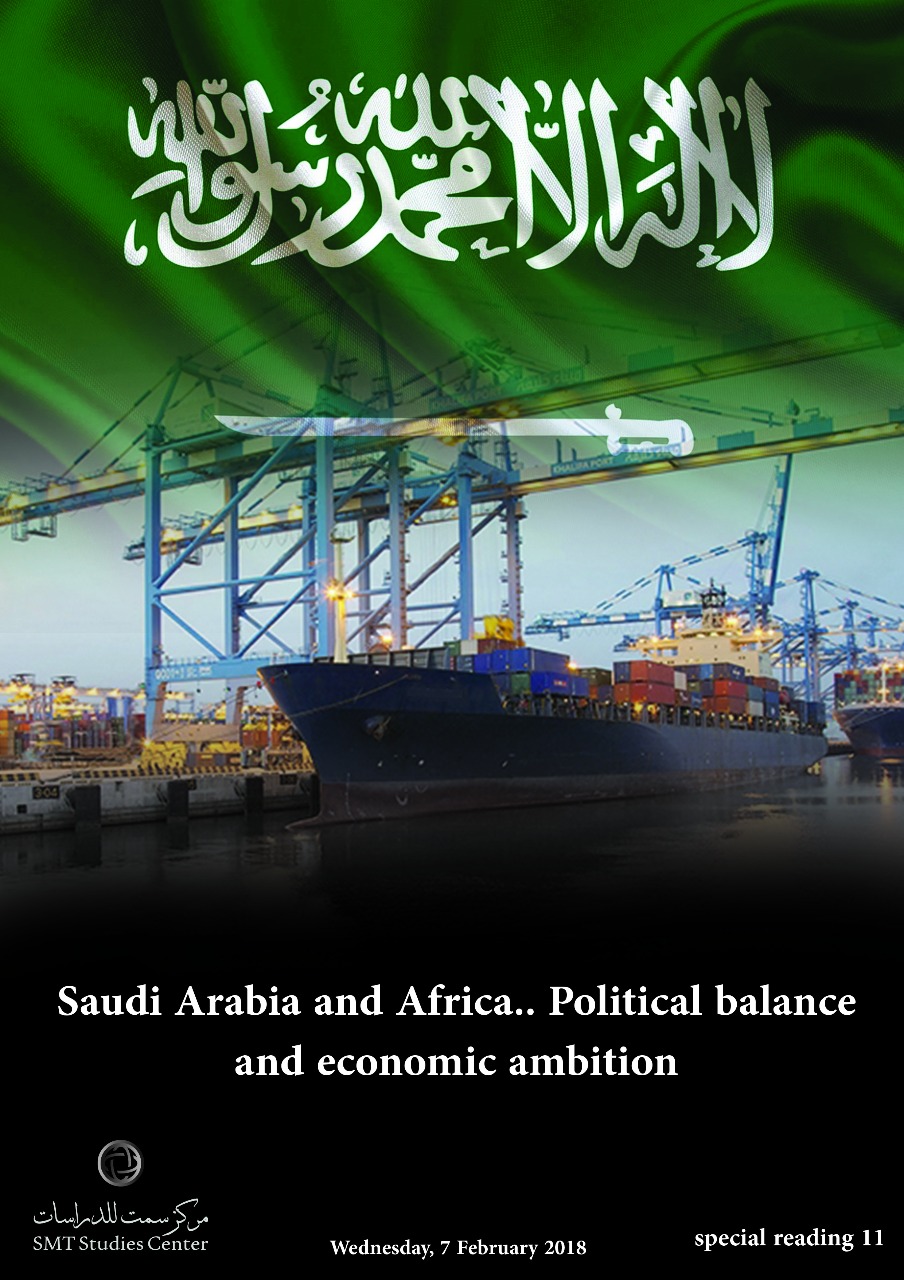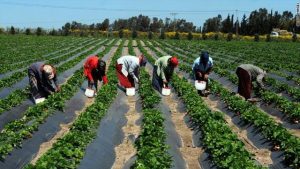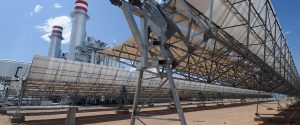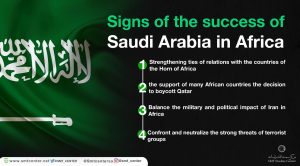Subscripe to be the first to know about our updates!

Saudi Arabia and Africa.. Political balance and economic ambition
It is known that the African countries have been affected by many Western foreign interventions throughout history, and have never relished stability because of them, unlike those periods in which the African continent has witnessed remarkable stability, thanks to the Arab-African relations during different stages of history, both before and after the emergence of Islam. In the late 1960s and early 1970s, the continent experienced a typical stabilization by virtue of its relationship with the Arab forces, which represented an ideal model that allowed large numbers of Arabs to exist in Africa[1]. This – definitely – has a significant impact on mutual exchange at the level of cultural, social, economic and security frameworks.
Over the past few years, many African countries have attracted the attention of the world to their fast and steady growth rates and the lowest inflation rates in the past three decades, leading to a decline in high levels of poverty. Africa recorded an average growth rate of 5.4% Over the past decade[2].
It is well known that African countries were concerned with the creation of their investment environments, beyond the critical stage, during which they were characterized by unstable political conditions, weak growth rates and inappropriate economic policies. They succeeded in creating an appropriate investment environment after reviewing their economic policies, New legislation, rules and regulations that support the economy and encourage investment[3].
Many countries in Africa have developed institutions and institutions to regulate economy and investment, which have established a number of rules that have facilitated investment conditions, risk reduction, transparency, money transfer and duty-free treatment[4].
The Saudi investment experience in Africa:
Over the past four decades, the Kingdom has succeeded in strengthening African relations. The Kingdom has provided all the support and development assistance to African countries. In fact, Saudi Arabia is an ideal partner for East African countries[5]: Ethiopia, Uganda, Tanzania, Kenya and Djibouti. The five African countries are a huge market with some 190 million consumers and are Africa’s fastest growing economies.
The Saudi investment in the Sudan covers all areas, especially the agricultural, industrial and service sectors. Saudi Arabia is the largest agricultural investment in Sudan with about 250,000 acre in the state of the River Nile and Northern Sudan. The Saudi investment in Ethiopia is one of the largest investments in East Africa. A Saudi company in Ethiopia produces more than 10,000 tons of coffee from its farms and exports 70 percent of its production abroad[6].

Saudi Arabia is investing heavily in Ethiopia in the fields of construction, agriculture, mining, hotels, medical supplies, health and education. Saudi Arabia has already signed about 16 agreements, which have planted two million hectares, five of them in Ethiopia alone, in addition to Sudan, Senegal.
In addition to economic cooperation, Saudi Arabia has provided tremendous cultural support to Africans through cultural and educational missions and religious supplements in Saudi embassies, and has built many Islamic centers and mosques, in addition to the large numbers of African students studying in Saudi universities and higher institutes[7].
Why are Saudi-African relations important?
According to the principles of the Kingdom known in the field of international foreign relations, it is keen to establish equal relations with the major powers that have been associated with a network of interests that can be described as a reflection of its pivotal role in the growing Arab and Islamic worlds, which sought to expand the circle of Saudi action on The Kingdom is trying to interact with the centers of gravity and influence in international politics, taking into account all the implications and responsibilities of this policy[8].
Saudi Arabia seeks to build new strategies in Africa and establish strong relations of trust with the countries of the Horn of Africa. The real partnership is of great importance in creating immunity for joint action and economic, political and security cooperation at the bilateral, Arab and Islamic levels. The Arab-Arab alliances are no longer sufficient to meet the current challenges, which indicate the need to open and enhance opportunities for cooperation, coordination with new international forces and the formation of a political-economic-military equation to create a balance of power in the region[9].
According to these frameworks, the Horn of Africa is an important strategic location for Saudi Arabia, serving the security of» Bab al-Mandab«, supporting its military operations in Yemen and a strong source of financial and human investment. It is a continent full of all kinds of solar energy, oil, gas, And a great deal of manpower. A new alliance is in line with Plan 2030, which is outlined by Prince Mohammed bin Salman, the Crown Prince, which allows the Saudi economy to grow and flourish, with ideas outside the traditional fund of oil revenues, as well as the provision and achievement of Saudi food security[10].

On the other hand, cooperation with Saudi Arabia holds a golden opportunity for the countries of the continent, and a hope for salvation from the exploitation of the colonial countries. This is why the African countries in Riyadh see a reliable partner for several reasons. The Kingdom enjoys great religious status among Muslims all over the world especially those with large numbers of them.
Riyadh also has huge financial resources, both the state’s financial reserves, the private wealth of individuals and institutions, and the Kingdom’s constant efforts to find suitable opportunities for investment abroad. The Kingdom’s pivotal role in making important and urgent events, including the stability of energy markets and the regional and international economy, No matter how powerful the group of twenty global economies[11].
The future of Saudi-African relations:
It is expected that the future of the Saudi-African relations will lead to more positive development and multiple achievements at all levels. Saudi Arabia will benefit from the success of the experience by activating and diversifying its relations with the African countries, especially as it has the religious role, economic strength, regional role and the international weight that qualifies it to play the role of leader of Arab relations. Africa, and here it is worth mentioning the three things[12], because they have an indication of cutting Saudi Arabia a long way in strengthening ties with the countries of the Horn of Africa:
1 – The support of many African countries the decision to boycott Qatar, as Mauritania cut diplomatic relations with Qatar, and followed by the government of eastern Libya, Mauritius and the Comoros, while summoned her ambassador from Doha to consult, and recalled Senegal also its envoy from Doha, and announced its solidarity with Saudi Arabia, The same thing was done by the Niger, while Gabon just denounced the actions of Qatar, and Djibouti announced the reduction of its diplomatic representation with Doha, in solidarity with the Arab Coalition against Terrorism.

2 – Balancing the military and political impact of Iran in Africa, and accordingly launched military strikes against the Iranian-backed »Houthi Movement « in Yemen, Djibouti allowed the establishment of a Saudi military base on its territory, Eritrea agreed to Saudi Arabia using the port »Asab« – near Ethiopia – For military operations in Yemen.
And to counter Iranian attempts inside the continent, to spread »Shiism« through financial inducements, and the recruitment of mercenaries from the African ranks of the Iranian Shiite militias.
- Confronting and neutralizing the strong threats of terrorist groups, which have found human and intellectual sanctuaries inside Africa, under the pressure of material need and poverty in some areas. In this regard, new elements have been acquired in mercenaries, especially the flight of many terrorist elements to Africa after their defeats In Syria and Iraq.

Political Studies Unit
[1] https://goo.gl/T7k8x7 Elizabeth Dickinson – What Saudi investors could mean for Africa?
[2] https://goo.gl/4qw2DP Economic Growth in Africa- The World Bank
[3] https://goo.gl/hsd5zF 3 reasons things are looking up for African economies- World Economic Forum
[4] https://goo.gl/5mYwv2 African Economic Growth Rides on Wireless Rails- Bloomberg – By Matthew A. Winkler
[5] https://goo.gl/HLDj7J West African Force Secures Saudi Arabian Backing to Fight Jihadist Threats
By Olivier Monnier
[6] https://goo.gl/P3Mgw7 – Saudi Arabia and Iran fight for Africa’s loyalty
By Tomi Oladipo
[7] https://goo.gl/f18sWa- Saudi Arabia pledges 100 million Euros to fight extremism in Africa
[8] https://goo.gl/tHtdKt Africa: Saudi Arabia-Qatar Rift Rattles the Region- By Berouk Mesfin
[9] https://goo.gl/CGP8aB- Riyadh looks across the Red Sea: What Saudi investors could mean for Africa
[10]https://goo.gl/TLthHy- Saudi Arabia’s crown prince scales back his ambitions
[11] https://goo.gl/5yeutQ- The Fight for Africa: The New Focus of the Saudi-Iranian Rivalry- By Gerald M. Feierstein
[12] https://goo.gl/K7Z4Mk- Saudi Crown Prince launches NEOM, a ‘$500bn investment in the future’- Staff writer, Al Arabiya English